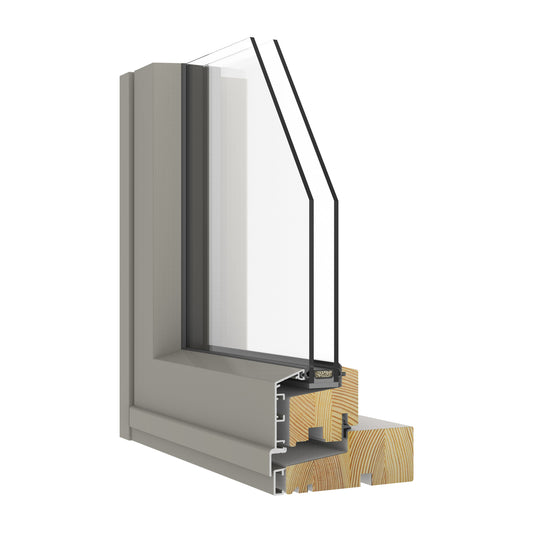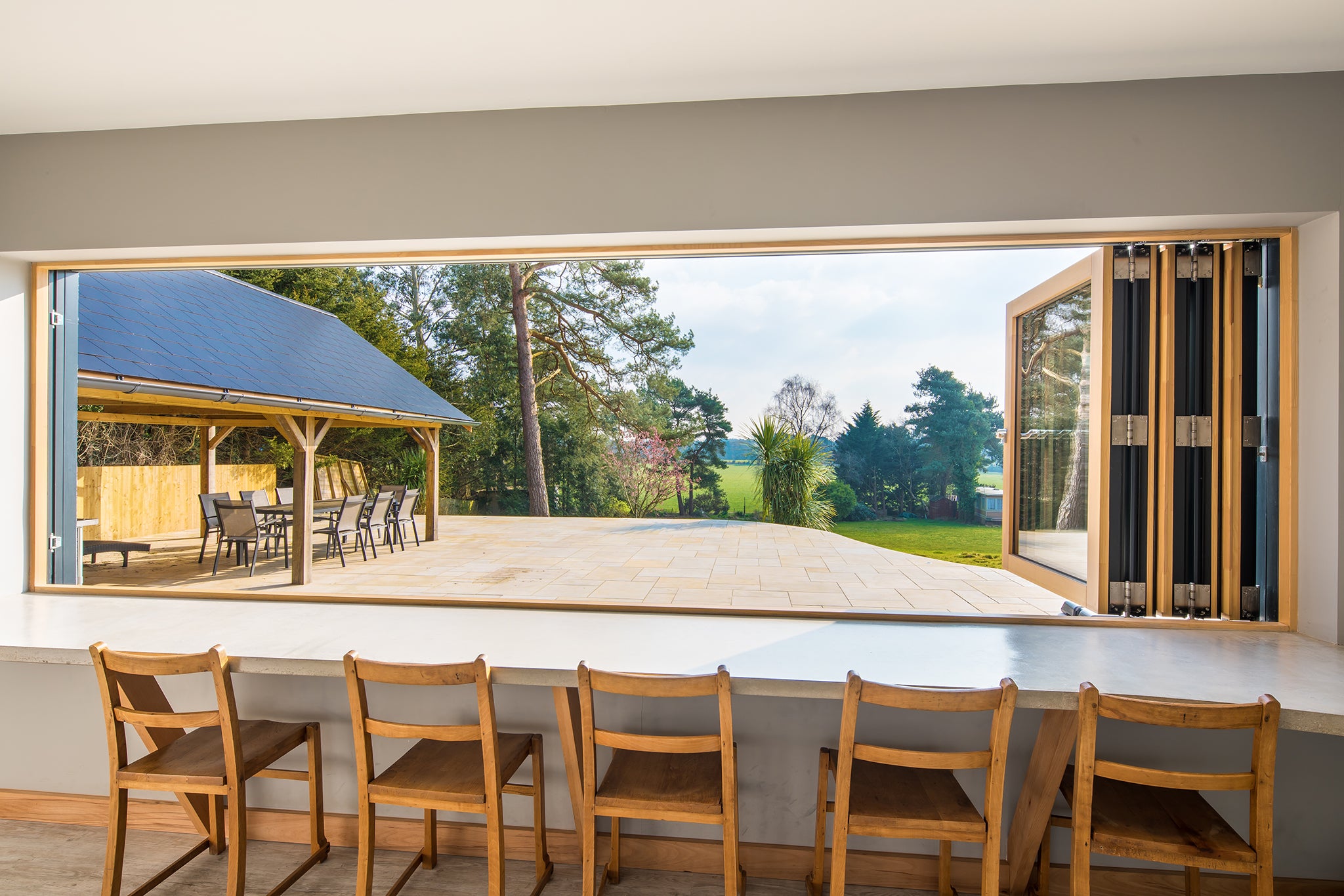
Why choose composite windows?
The choice of window materials, configurations and styles on the market today can be overwhelming. In this article, we compare several popular window types and explore 5 key advantages of timber-aluminium composite windows.
Aluminium-clad timber composite windows – often referred to simply as ‘composite windows’ - are timber frame windows clad in a protective powder-coated shell. They are designed to maximise the benefits of both materials.
Composite windows offer an excellent compromise between the performance, warmth, and classic charm of timber, and the contemporary appeal of aluminium. But composite windows aren’t the only choices on the market.
What are the alternatives?
-
uPVC windows
uPVC windows are usually cheaper than composite windows. They are also lightweight and easily customisable.
That said, timber composite windows easily outstrip their uPVC alternatives for thermal performance and have a much longer lifespan than uPVC windows. Energy savings over this period make timber composite windows the more cost-effective option long term. uPVC windows are also difficult to repair and usually need replaced if damaged.
-
Timber Windows
Timber has been the material of choice for window manufacture for generations, and many timber windows are still in use that are more than a century old.
Like aluminium, wood is much stronger than uPVC (which requires a metal core to provide the necessary structural support). Wood acts much better as an insulator than either aluminium or uPVC. However, poor quality products produced in the building booms of the 50's and 60's made the arrival of "maintenance free" aluminium and later uPVC seem very attractive.
-
Aluminium Windows
Aluminium is a stronger material than uPVC. All-aluminium windows are often used for their thin sightlines.
Attractive, powder-coated aluminium also adds more kerb appeal than uPVC and is more likely to add value to the property. Most aluminium window suppliers offer finishes in any RAL colour, affording great versatility of design and real aesthetic appeal.
Advantages of aluminium windows over all-timber models include: A more contemporary look No priming, sanding or subsequent painting Low maintenance No warping, rotting or movement issues
However, whilst all-aluminium frames are strong and light, aluminium is a very poor insulating material. In fact, as a raw material, timber is around 800 times more effective as an insulator than aluminium.
Obviously, aluminium windows are not typically made of solid metal, but even with multi-chambered extrusions and thermal break layers, aluminium is still a poor relation where thermal performance is concerned. -
Timber-Aluminium Composite Windows
Timber-aluminium composite windows provide the best of both aluminium and timber.
The highest quality composite windows are made from laminated or ‘engineered’ timber, a process that enhances frame durability and makes the windows much less prone to movement than pure timber frames.
The low thermal conductivity of wood makes it by far the highest-performing insulator of frame materials on the market.
Although aluminium cladding does not contribute directly to thermal performance, it can allow for the use of deeper glass units, which provide further performance benefits.
Alu-cladding protects the external timber, the whole window is more durable than the all-timber option.
Which windows are right for you?
Take our short survey to discover the perfect windows for your project.
The advantages of composite windows
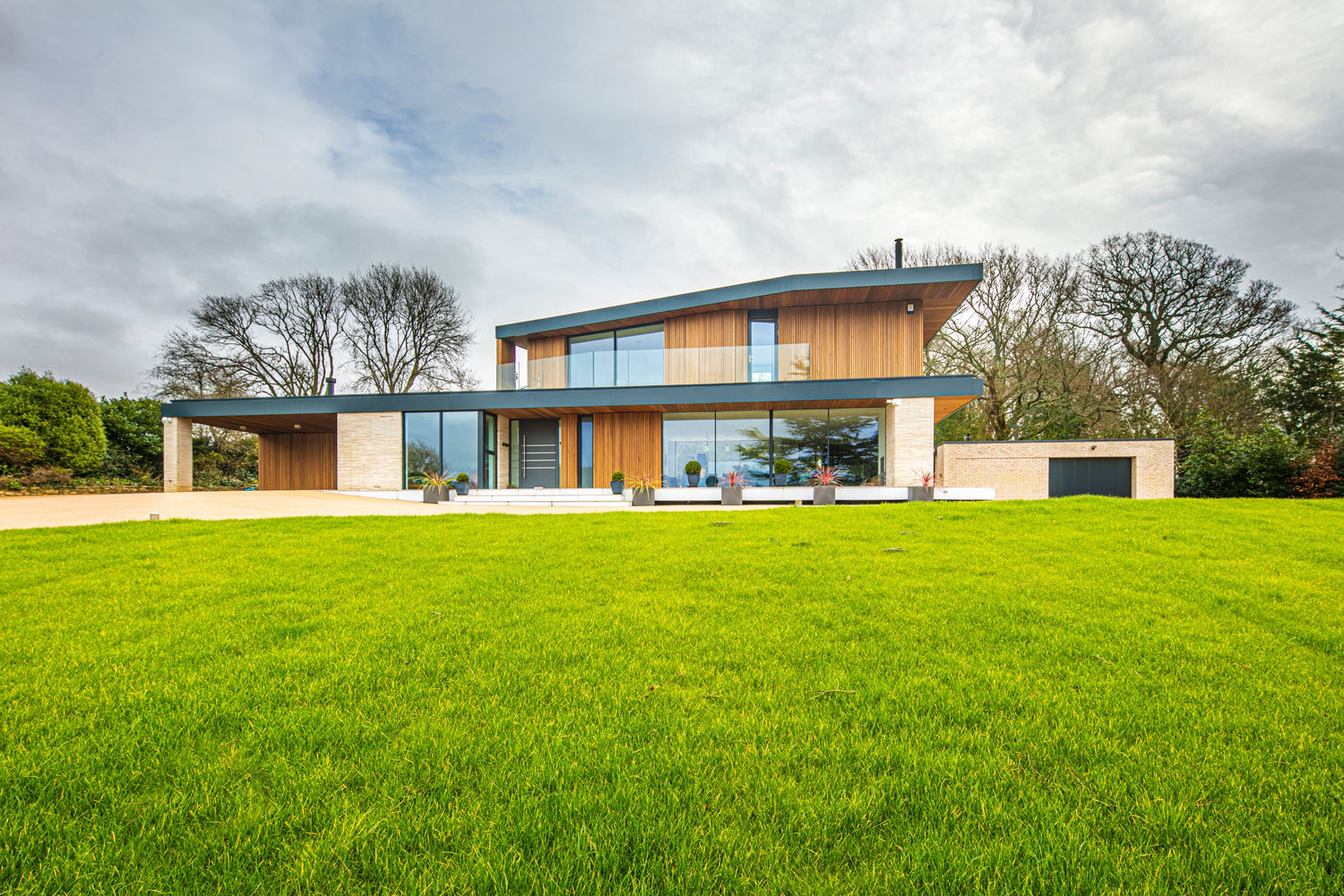
Thermal performance
Outstanding performance is an obvious reason to choose composite windows.
With U-values in the region of 0.8 W/(m²K) or better (and some as low as 0.6 W/(m²K)), our triple-glazed composite windows and doors are significantly better performers than aluminium or uPVC models.
Several of our models are suitable for use in Passive House and EnerPHit projects, meeting stringent criteria for performance and comfort for use in truly energy-efficient homes.
Put simply, timber-aluminium composite windows are unbeatable for performance.
You can read more about the unique elements that make a window truly thermally efficient here.
Why should thermal performance be central to your choice of windows?
- Firstly, for comfort. When you choose high performance alu-clad timber windows, you can expect fewer draughts, a warmer inside glass pane temperature, significantly less heat lost through windows and doors - and a generally more pleasant living experience.
- Secondly, to save energy - and money.
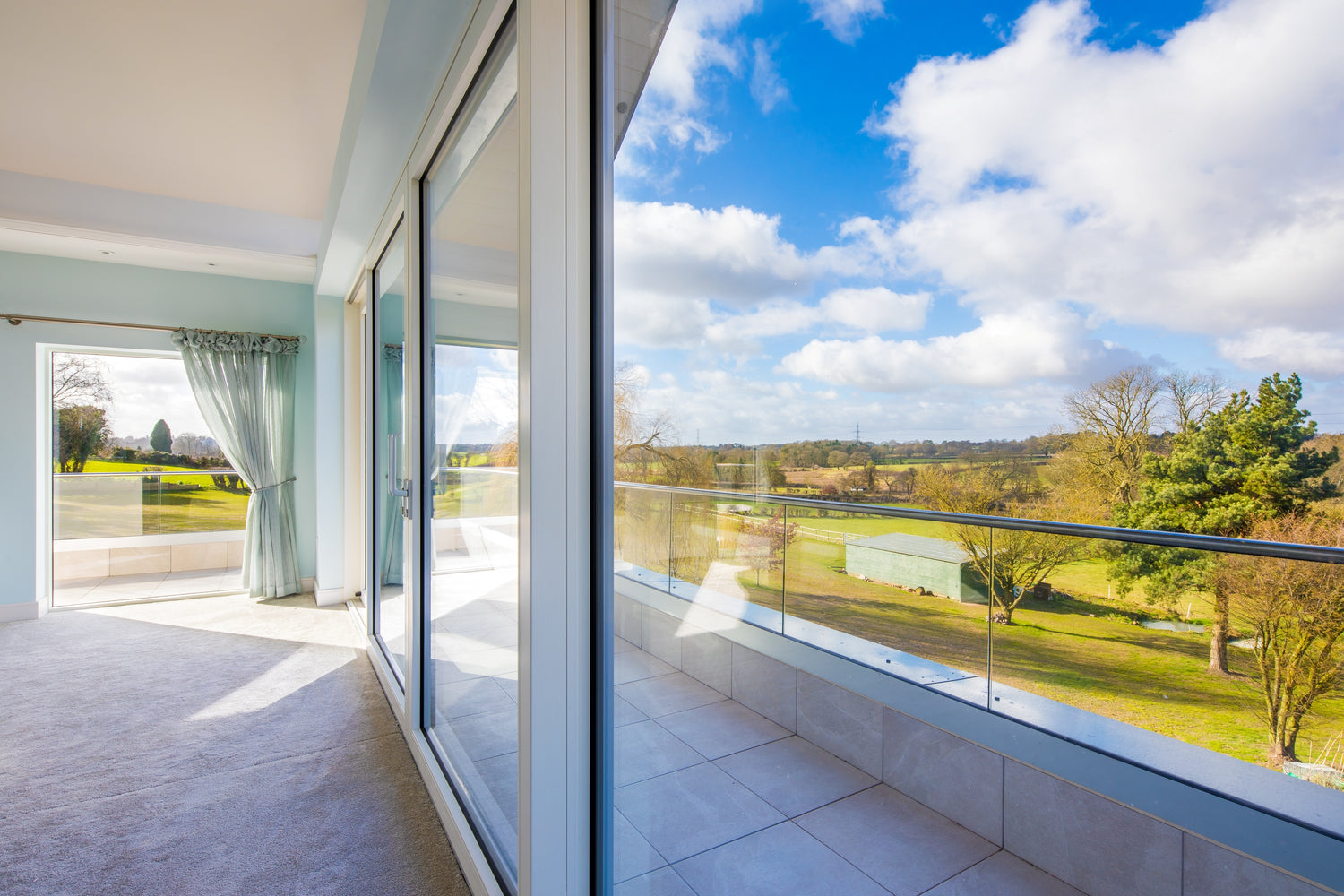
Energy savings & sustainability
Over their lifespan, the superior thermal performance of high-performance composite windows will significantly lower your projected energy usage.
With alarming increases in energy prices and an ever-growing emphasis on low-carbon building, the energy efficiency of composite windows only continues to grow in importance as time goes on.
Installing high performance triple-glazed composite windows is a well-established criterion of Passive, EnerPHit and other low-energy building standards – and a key contributor to the overall thermal envelope of your home.
Sustainability is also a key factor to consider here. The components, construction processes and waste associated with composite vs. other windows are all worth considering.
uPVC windows are made from fossil-fuel-based plastics, implicate high emissions during manufacturing and are difficult to recycle. By contrast, our omposite windows are made only from FSC and PEFC-certified timber - both renewable and biodegradable.
Aluminium can be completely recycled and the production methods and waste materials from producing composite windows are much more environmentally friendly than windows and doors made from uPVC or Aluminium. For example, sawdust produced from the manufacturing process is used for heating.
You can read more about the environmental impact of wood vs uPVC windows here.
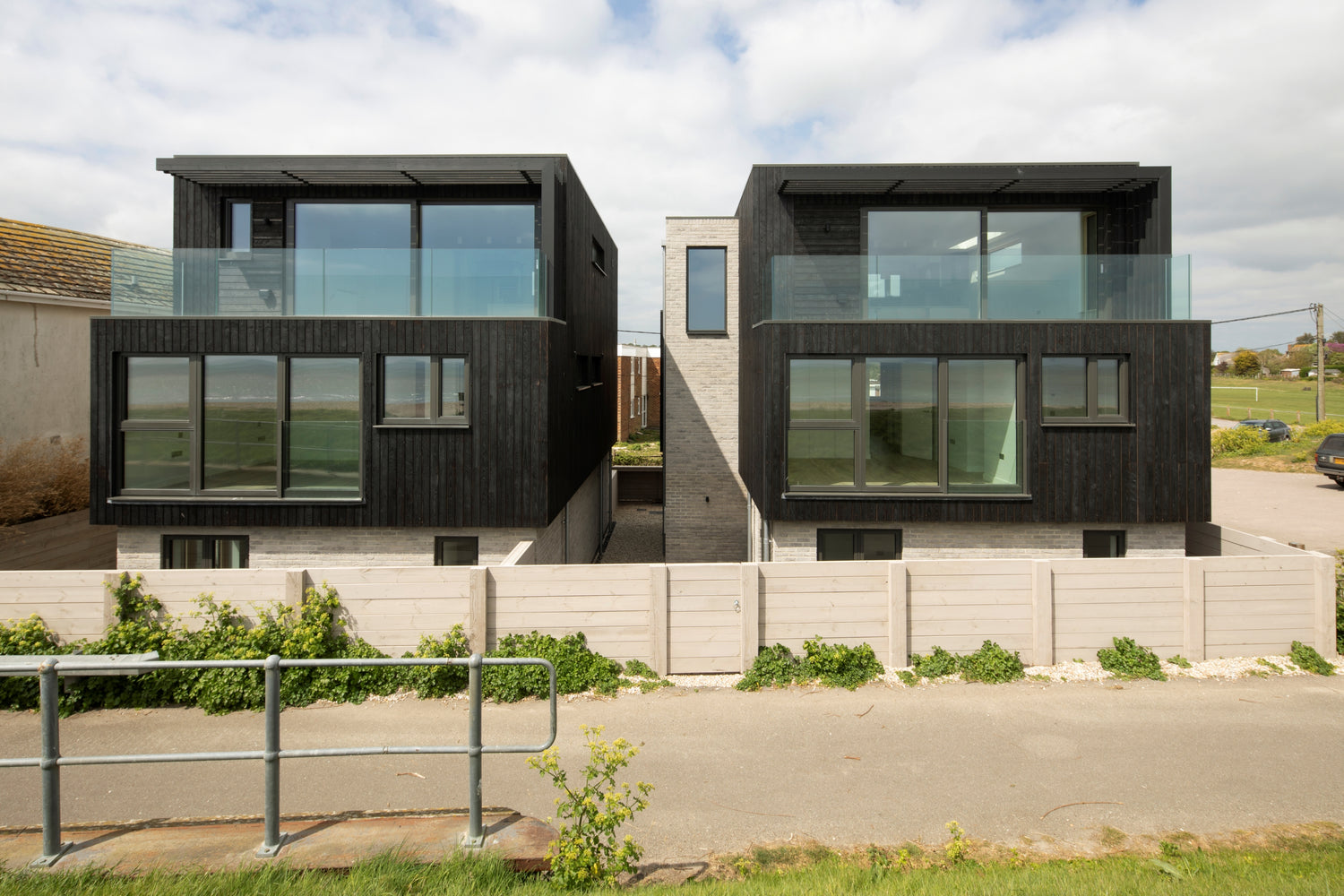
Style & flexibility
Can you paint composite windows? Are they customisable? Yes. The best composite windows use high-grade powder-coated aluminium, typically considered to be the highest quality finish for an aluminium window.
As well as being low-maintenance and weather resistant, alu-cladding can be finished in any RAL colour.You can specify textured finishes, or marine grade powder-coating for properties in coastal or exposed locations.
Internally, the timber frame can again be finished in any RAL colour or in an attractive lacquer to highlight the beauty of natural wood. You can have distinct colours internally and externally – known as dual colour finish.
Composite windows offer unrivalled stylistic options. Use them in projects from heritage revivals to contemporary new builds. Your order is completely bespoke - from the glass type and colours you choose down to the window mechanism. Hinge systems can be configured in several ways. The frame dimensions, thickness, shape, and opening system of your products are all bespoke to your order.
Composite windows are the perfect aesthetic compromise between sleek aluminium and warm, characterful wood.
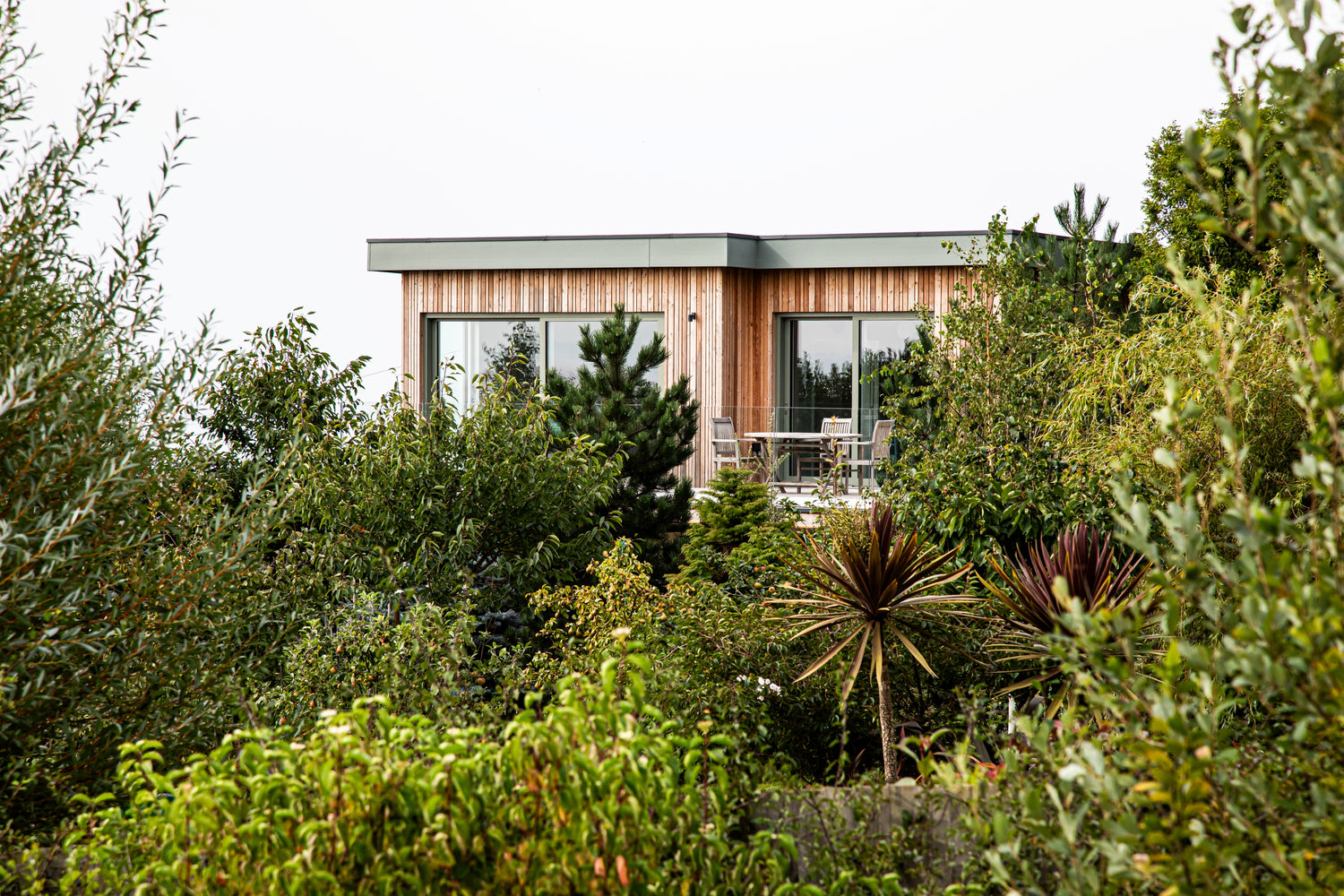
Cost effectiveness
Are composite windows worth the cost? To be clear: alu-clad timber windows will set you back more than most other window types on the market.
That said, you can expect the initial investment in triple-glazed composite windows to be recouped in the long term – and more quickly than by any other inferior window type.
This occurs because, over the course of their lifespan, energy efficient windows will lower your overall energy usage significantly – and implicit in lower energy usage is lower cost.
Further: the value added to your home by composite windows easily outstrips any feasibly added by a cheap uPVC installation.
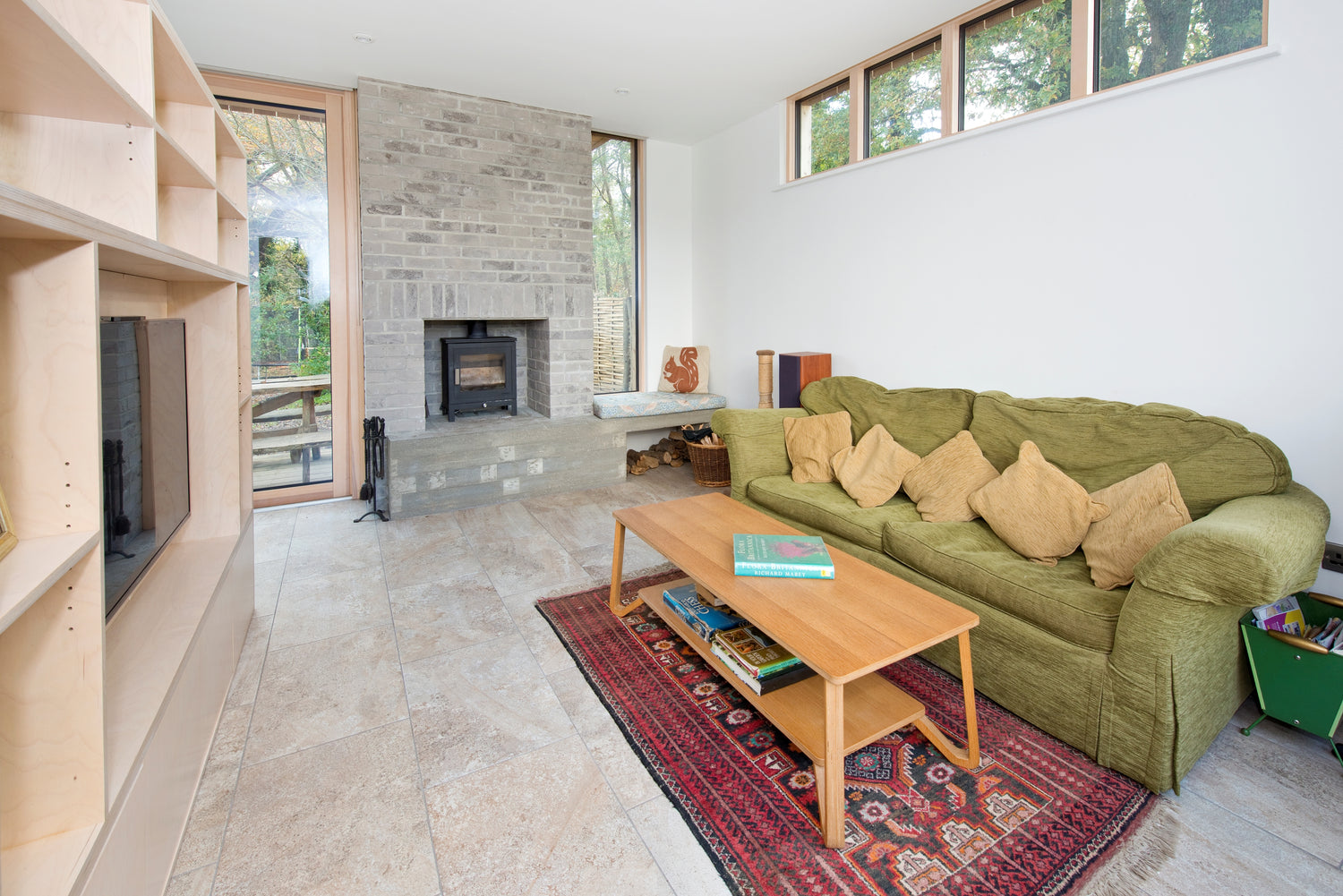
Lifespan, strength & security
How long do composite windows last? There is no set lifespan, but you can expect your composite windows (if properly maintained) to have a lifecycle of up to double that of uPVC windows, around 50 years.
Composite windows are much easier to repair than uPVC models. A damaged uPVC window will usually need replaced, whereas undertaking minor repairs to either timber or aluminium is relatively simple and will prolong the anticipated lifespan of your windows.
Laminated timber is a much more robust material than uPVC or aluminium. Our products come with laminated glass as standard for glazed entry doors and multiple locking points to both windows and doors.
Forced ingress is extremely difficult due to the solid and unyielding nature of the timber - all our composite products conform to PAS 24:2016 enhanced security performance requirements for doors and windows in the UK.
Best selling composite windows
-
Outward Opening Alu-Clad Window (P31A)
Regular price £0.01 GBPRegular priceUnit price / per -
Inward Opening Alu-Clad Window (P33A)
Regular price £0.01 GBPRegular priceUnit price / per -
Outward Opening Alu-Clad Window (P41A)
Regular price £0.01 GBPRegular priceUnit price / per -
Outward Opening Alu-Clad Window (P11A)
Regular price £0.01 GBPRegular priceUnit price / per
Inspiration for your project
From heritage transformations to scandinavian-style passive houses, discover how Norrsken windows and doors transform exceptional homes into extraordinary spaces.
Whether it's converting industrial barns into a contemporary sanctuary or pushing the boundaries of sustainable design in passive houses, our projects span every architectural vision. See how our windows and doors brought your Norrsken neighbours' visions to life.
GALLERY
Your questions answered
Have a question? You’re not alone. We’ve answered some of the most common queries about Composite Windows below.
Collapsible content
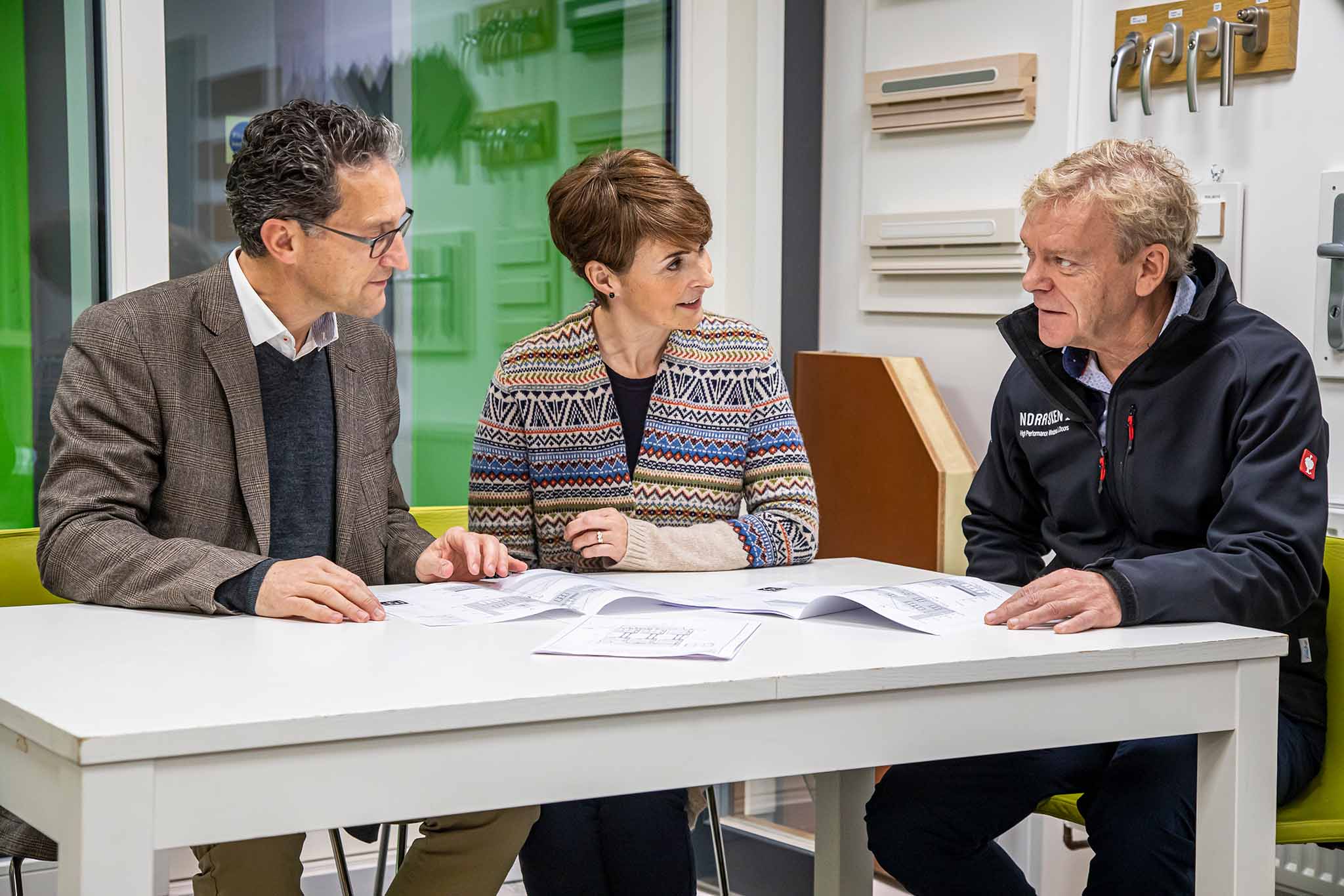
What are composite windows?
Composite windows are manufactured by combining two different materials, which together provide hybrid properties.
There are currently two main types on the market - aluminium-clad timber windows and aluminium-clad uPVC windows.
Aluminium-clad timber or aluminium-clad upvc?
We recommend timber composite windows for their many advantages over uPVC.
Including the durability and strength of engineered timber, better insulation and U-values than uPVC windows, a longer lifespan and the potential value increase to a property.
Are composite windows better than uPVC?
Timber composite windows usually exceed uPVC alternatives in thermal performance, have a much longer lifespan than uPVC windows and have a lower carbon footprint.
Energy savings over this period make timber composite windows the more cost-effective option long term, even though uPVC windows are cheaper to buy. (Source: Researchgate)
Are composite windows worth it?
Composite windows tend to be more expensive than uPVC models, but offer a wider range of benefits.
These include better thermal performance, aesthetic appeal, a longer lifespan, use of more environmentally friendly materials and lower maintenance.
They are certainly the smarter choice for a well-insulated home in the long run.
Can composite windows be painted?
Our aluminium-clad timber composite windows can be finished in any RAL colour with a powder-coated finish.
Dual colour finish - different colours inside and out - is available as standard, so there is no shortage of options when choosing the colour of your windows! Internally the windows can be repainted later if desired.
How long do composite windows last?
With proper maintenance, composite windows can last upwards of 50 years.
A considerable uplift from the 20-odd year lifespan of uPVC windows.
Are composite windows better than aluminium windows?
While all-aluminium frames are strong and light, aluminium is a very poor insulating material.
Timber-aluminium composite windows provide the best of both aluminium and timber - aesthetic appeal, low maintenance, exceptional thermal performance and low U-values, which translates to lower heating bills.
They also last longer and are more likely to add value to the property, although they tend to cost more.
What’s the difference between timber and timber composite windows?
The insulation properties of wood makes it by the best choice for window frames.
Timber composite windows have an additional layer of aluminium cladding over the timber window frame. This protects the window from the elements, extends its lifespan and requires almost no maintenance.
What are the benefits of composite windows?
Timber aluminium composite windows are very energy efficient, with U-values lower than 0.8 W/(m²K).
This makes a home more comfortable and cheaper to heat in the long run. They are customisable, better for the environment than uPVC and all-aluminium windows and last significantly longer.
Are triple-glazed windows right for you?
Triple-glazed windows provide homeowners a marked increase – 40-45% - in thermal performance from double-glazed alternatives, meaning greater comfort, lower heating bills, and an uplift in property value.
These windows and doors are durable, secure and aesthetically pleasing - and they're not just for Passive Houses, either. When choosing your windows and doors, though, you should take into account your whole-building thermal efficiency, budget, and noise concerns to make an informed decision.
High performance double-glazing can provide a useful alternatives to those considering triple glazing who feel it doesn’t suit their project requirements. When you choose alu-clad timber triple-glazed windows and doors, you benefit from the charm and warmth of wood and the sleek, low maintenance needs of aluminium.
Norrsken double and triple-glazed windows are engineered for exceptional thermal performance, keeping your home comfortable and energy-efficient year-round.
When choosing your windows and doors, though, you should take into account your whole-building thermal efficiency, budget, and noise concerns to make an informed decision.
Choosing Norrsken isn't just about windows and doors; it's about choosing a partner in your building journey
At Norrsken, we supply and install the UK's finest double and triple-glazed timber alu-clad windows and doors. We take pride in exceptional craftsmanship, meticulous attention to detail, and outstanding customer service.
From initial consultation to after-sales support, we're here to ensure your complete satisfaction. So ditch the window search blues and embrace a smoother, more streamlined building experience with Norrsken by your side. Explore our stunning range of alu-clad timber windows and doors today, and discover the Norrsken difference.
-
Our Window Range
Premium design, precision engineering -
Our Door Range
High performance insulated entryways
Unmistakably trusted.
The highest compliment is a recommendation. These are the voices of those who placed their trust in us.
"Excellent Company from start to finish… If only every window supplier operated like this! I have used many others over the years on various projects but Norrsken far exceeded all of them… I hope this helps you make a decision for what is probably a large chunk of your budget… They are totally worth it"
Angela Smith
Self Builder
“Having used Norrsken in the past we were happy to recommend them to one of our clients who was looking for the best sound proofing and weatherproofing they could get being set on a hill top overlooking the sea and facing strong westerly winds. They were not disappointed. A quality product, delivered well and on time. Thankyou.”
Ken Pearson
Homeowner
"Fantastic professional service, from the original design to the final installation. The triple-glazed windows and doors that have been fitted to our new house are of a very high quality and look amazing. We definitely made the right choice when we decided to use Norrsken, nothing is too much trouble for them."
Nigel
Homeowner
"I did my research before contacting Norrsken but they had come highly recommended by our Architect for our Passive House self build.
From the first meeting with Nick we felt confident that they were the Company for us."
Ali and Brian Manning
Passive House Self Builders
“The quality of the triple glazed, alu-clad windows and doors is superb. They feel so reassuringly solid ... I opted for a wood stain for the internal finish on the frames, and am so glad I did, as it shows off the beauty of the wood perfectly. The whole process from order to installation went smoothly. I thoroughly recommend Norrsken.”
Gareth
Homeowner
"Norrsken provided attentive service from drawings to on-site installation for our project at National Trust Stourhead and we would definitely recommend and repeat commission them on future projects."
Charlotte Hill-Baldwin
Architect, H-B Designs
“From our very first interaction to the aftercare support, Norrsken has been exceptional. The quality of their windows is outstanding - beautifully designed, expertly crafted, and a real standout feature in our home. They've truly elevated the overall look and feel of the house.”
Neil Southwell
Self Builder Homeowner
Related resources
View all-

Is triple glazing worth it in 2026?
All you need to know about triple glazed windows in 2026. Cost-benefit analysis, Future Homes Standard compliance, and expert guidance.
Is triple glazing worth it in 2026?
All you need to know about triple glazed windows in 2026. Cost-benefit analysis, Future Homes Standard compliance, and expert guidance.
-

What era is your home? A quick guide to UK windows
Identify your home's “generation” and understand what typically suits it – from Elizabethan leaded lights to contemporary walls of glass.
What era is your home? A quick guide to UK windows
Identify your home's “generation” and understand what typically suits it – from Elizabethan leaded lights to contemporary walls of glass.
-

How to order Passive House windows
Guidance to make confident decisions about suppliers for your Passive House project.
How to order Passive House windows
Guidance to make confident decisions about suppliers for your Passive House project.
-

Triple-Glazing: Is the investment worth it for ...
Lower energy bills, warmer rooms and quieter living. Discover when triple glazing is worth the investment.
Triple-Glazing: Is the investment worth it for ...
Lower energy bills, warmer rooms and quieter living. Discover when triple glazing is worth the investment.




